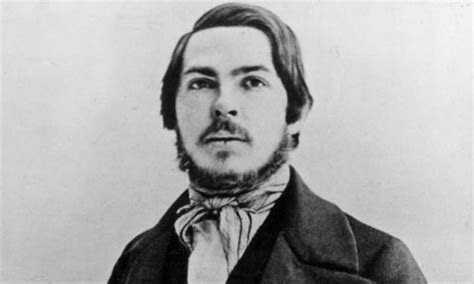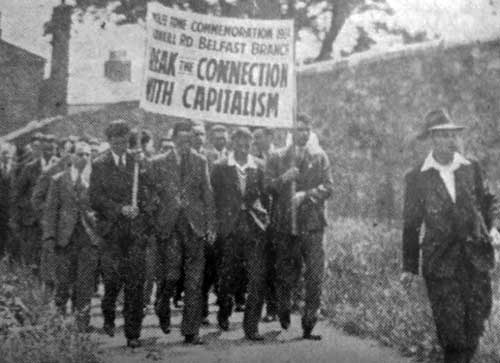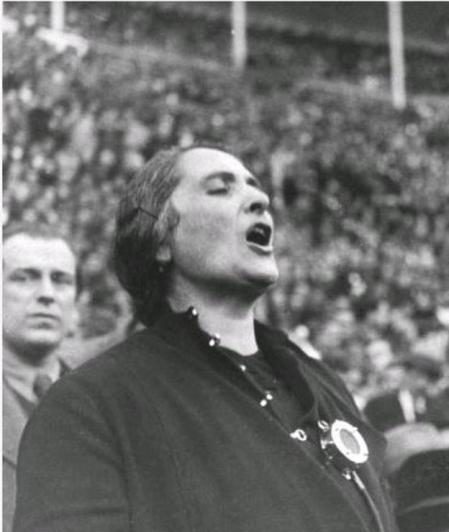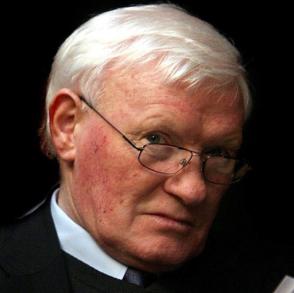Friedrich Engels was not quite the Luigi of communism that he was so keen to present himself as, writes Tara Brady.
In 2017, Turner prize-nominated artist Phil Collins moved a Soviet-era statue of Friedrich Engels from Ukraine and permanently installed it in Manchester, where Engels lived and worked for many years. This was a significant gesture, not least because Engels has long been the Other Guy in Marxist history. Most people think of Engels – if, indeed, they think of him at all – as a kind of secretary or scribe: the Robin to Karl Marx’s Batman.

Engels himself was content to stand in the Marx-sized shadows. “How can anyone be envious of genius?” he asked. “It’s something so very special that we, who have not got it, know it to be unattainable right from the start?” He also referred to himself as Marx’s “second fiddle”. And when asked about a personal motto he said: “take it easy”.

But Engels, who spoke 24 languages according to his sister, and who was, after all, the co-author of The Communist Manifesto and the co-founder of scientific socialism, was more than the useless Robin pictured above. He was certainly no intellectual slouch. With Marx, he co authored not only The Communist Manifesto in 1848, but The Holy Family in 1845 and The German Ideology in 1846. His first book, The Condition of the Working Class in England, published in 1845 and written when Engels was in his early 20s, is an extraordinary, lucid, compelling, far-reaching, still shocking – and material – account of the negative and crippling impact that the industrial revolution had upon the working class.
It was groundbreaking enough to inspire Marx to reach out to Engels and to solidify the thoughts in Marx’s mind that would eventually percolate into The Communist Manifesto. Re-reading it late in his life, Marx felt compelled to write to his oldest chum: “What power, what incisiveness and what passion drove you to work in those days. That was a time when you were never worried by academic scholarly reservations! Those were the days when you made the reader feel that your theories would become hard facts if not tomorrow then at any rate on the day after.” Condition is a work with a significant afterlife. Mike Davis, the urban theorist, follows it very closely and pointedly in Planet of Slums, his 2005 analysis of poverty, supercities, and immigration across the world’s poorest nations.

Should anyone, moreover, require proof that Marxism is not a doctrine, but a science, I would point them towards Engels’ final works. The rigorous material analysis that inspired The Communist Manifesto, is translated into mathematical analysis in Engels’ 1878 book, Anti-Dühring. Marxist ideas, especially those of dialectical materialism – dialectical materialism being the idea that history progresses through opposing ideas and forces – are applied to mathematics, physics and chemistry in 1883’s Dialectics of Nature. So to the very end, Engels was standing his ground, fighting for what he believed in, developing new applications, and engaging with the newest scientific, political and cultural ideas of the age.
We would expect nothing less from a man who, as a soldier in the German Revolution of 1848 distinguished himself as a “General’, as he was nicknamed, and as one of the great theorists of warfare of the 19th century, with a series of anonymously written articles on military organisation, weaponry, strategy, and tactics. Despite his excellent efforts on the frontline, he didn’t refrain from criticising his bourgeois fellow soldiers. He was outspoken enough, in fact, to get arrested by other revolutionary (albeit capitalist) insurgents. The capitalists, he felt, would surely capitulate to the monarchists. Which they did. “You have seen and ever felt that the bourgeoisie sends the workers into the fire and betrays them afterwards in the most infamous way”, he wrote for the Cologne-based newspaper, Organ of Democracy.
This incident serves as a good illustration of how Engels’ grasp of dialectic materialism allowed him to predict future events. Similarly, in a 1888 letter to his colleague Friedrich Sorge, Engels made a chilling prediction of a coming global war: “Finally, no war is any longer possible for Prussia-Germany except a world war and a world war indeed of an extent and violence hitherto undreamt of…. Eight to ten million soldiers will massacre one another and in doing so devour the whole of Europe until they have stripped it barer than any swarm of locusts has ever done.” If anything, of course, those estimates proved to be conservative.

Engels, from early in life, was an exceptional man and individual thinker who, even during his misspent youth, excelled at swimming, fencing, poetry, riding, drinking in taverns, and anything else he put his mind to. He was an internationalist. As a German with a Dutch surname that translates as English, he never had any time for nationalism.

Nor did he have any tolerance for anarchism. “The working class must first take possession of the organised political power of the state and by its aid crush the resistance of the capitalist class and organise society anew,” he wrote. “The anarchists put the thing upside down. They declare that the proletarian revolution must begin by doing away with the political organisation of the state. But after its victory the sole organisation which the proletariat finds already in existence is precisely the state. This state may require very considerable alterations before it can fulfil its new functions. But to destroy it at such a moment would be to destroy the only organism by means of which the victorious proletariat can assert its newly-conquered power, hold down its capitalist adversaries and carry out that economic revolution of society without which the whole victory must end in a new defeat and in a mass slaughter of the workers similar to those after the Paris Commune. Does it require my express assurance that Marx opposed this anarchist nonsense from the first day it was put forward in its present form by Bakunin?”
Growing up in a liberal Protestant, very bourgeois household in Prussia, Engels was the apple of his mother’s eye. For his father, however, he was “the scabby sheep of the family”.
And with some cause. Young Friedrich dropped out of the Gymnasium – or secondary school – a year before graduation.
Of course, there was always likely to be conflict with daddy, who owned textile factories, for reasons that would become increasingly apparent.

From an early age, Engels challenged his “Wuppertal faith” and was struck by the hypocrisies of a bourgeois class that was outwardly pious while inwardly calculating gains from the vicious exploitation of their employees. Engels was moved by the economic disparity he witnessed in his native Barmen, an early industrialised region often called the “German Manchester”. He was angered by what he saw in and around the textile industry that made his family rich. Aged 19, he wrote of factory workers “in low rooms where people breathe in more coal fumes and dust than oxygen” and of the textile industry’s tragic byproduct, a class of “…Karrenbinder, totally demoralised people, with no fixed abode or definite employment… who crawl out of their refuges, haystacks, stables, etc., at dawn, if they have not spent the night on a dung-heap or on a staircase.”
These words are written by a teenager in the 1830s and are all the more remarkable when one considers that factories, at this moment in history – save for a few trailblazing projects such as John Lombe’s water-powered silk mill at Derby, which was operational by 1721, for example – have only been around for decades. The first mechanised factories didn’t emerge until the late 18th century.
Engels was exposed to more radical political ideas during military service – again, not a duty expected from a young gentleman of his means – in Berlin. While in the military, he began to attend university lectures. He developed an interest in revolutionary and banned works by “Young German” authors such as Ludwig Börne, Karl Gutzkow, and Heinrich Heine. It was here that he fell in with Hegel and the romance around that philosopher’s disciples. The Young Hegelians were republican and liberal. They were exciting and idealistic. They wrote cultural criticism which lightly critiqued the Monarchy and religious dogma. They accepted the thrilling new Hegelian dialectic: that rational progress and historical change result from the conflict of opposing views, ending in a new synthesis.

–
Engels in Manchester
Engels’s father, alarmed by his son’s new Communist chums such as Moses Hess and those associated with the Young Hegelian circle of The Free, encouraged Friedrich to go to Manchester in England. They didn’t have many Hegelians in Manchester in the 1840s but they did have Chartists. Beginning in the 1830s, Chartism was a mass movement which sought: “…by every legal means to place all classes of society in possession of their equal, political, and social rights.’ So that is in air, along with many pollutants, of the industrial Manchester that the intellectually curious 22-year-old Engels arrives in. Manchester is key to Engels’ development. As Asa Briggs wrote in Victorian Cities: “All roads led to Manchester in the 1840s. Since it was the shock city of the age it was difficult to be neutral about it. If Engels had lived not in Manchester, his conception of ‘class’, and his theories of the role of class in history, might have been very different. In this case Marx might not have been a communist but a currency reformer. The fact Manchester was taken to be the symbol of the age in the 1840s was of central political importance in modern world history.”

In Manchester, when he would spend most of the next 22 years, Engels was right at the heart of a transformed society. From 1842, by day, Engels worked at the Ermen & Engels mill in Salford. By night, with his working class Irish lover Mary Burns on his arm, he frequented taverns and Chartist meetings: “I forsook the company and the dinner-parties, the port-wine and champagne of the middle classes, and devoted my leisure-hours almost exclusively to intercourse with plain working men,” he wrote. What he discovered, especially in the Irish quarter of the city, not far from Cottonopolis as it was known, was an abused underclass: “Women made unfit for childbearing, children deformed, men enfeebled, limbs crushed, whole generations wrecked, afflicted with disease and infirmity, purely to fill the purses of the bourgeoisie.”
He was appalled by the child labour, environmental impact, low wages, bad conditions, poor health, death rates – and the extent of “social and political power of your oppressors”. He noted the mortality rate in the urban centres of Manchester and Liverpool from smallpox, measles, scarlet fever, whooping cough and other diseases was four times that in the surrounding countryside. It is worth noting that Engels’ explanations of the etiology of disease in these communities are written decades before Paul Ehrlich’s studies of microbiology, which would concur with Engels’ descriptions and lead to the invention of antibiotics. Most importantly, however, Engels noted that the industrial revolution had left workers significantly worse off and had created a sizeable underclass who were materially, demonstrably worse off than they might have been in feudal times: “In 1842 England and Wales counted 1,430,000 paupers, of whom 222,000 were incarcerated in workhouses,” he wrote. “Poor law Bastilles the common people call them. Thanks to the humanity of the Whigs! Scotland has no poor law, but poor people in plenty. Ireland, incidentally, can boast of the gigantic number of 2,300,000 paupers.”

This reserve army of unskilled and often starving labourers existed against a backdrop in which capitalists pay their workers as little as possible, while exacting more work from them. As Engels put it: “If a manufacturer can force the nine hands to work an extra hour daily for the same wages by threatening to discharge them at a time when the demand for hands is not very great, he discharges the tenth and saves so much wages. This leads in turn to competition between workers for jobs, and to the creation of a pool of unemployed who can be pulled into the workforce when business is booming and laid off again when it is slack”.
This created class competition between workers – “the sharpest weapon against the proletariat in the hands of the bourgeoisie”. Without the protection offered by class solidarity or a union, the capitalist class, as Engels notes, “has gained a monopoly of all means of existence,” and “which is protected in its monopoly by the power of the state.”
But this working class, Engels realised, had the power and numbers to abolish the inhumanity of capitalism, to stand against low wages, the power of employers over non-unionised workers, and the threat of machinery or technology under capitalism. In this respect, it was unlike any other class in history. It had the means to take on the means of production. This radical idea would form the spine of The Communist Manifesto. But today we are not going to dive into The Communist Manifesto. We are, instead, going to look at The Origin of Family, Private Property, and the State in which Engels applies the Marxist notion of Historical Materialism to understanding the family as a social institution.
–
The Origin of Family, Private Property and the State
The Origin – as we’ll refer to it for short – provides a material analysis of how the family – as we know it – came to be. So it’s a very significant text for anyone on the left. And always has been.
Writing in 1895, Clara Zetkin, a leader of the socialist women’s movement in Germany, hailed Origin as being “…of the most fundamental importance for the struggle for liberation of the entire female sex”.

In a 1919 speech outlining the nature and genesis of the state, Lenin said: “I hope that in studying this question of the state you will acquaint yourselves with Engels’s book The Origin of the Family, Private Property and the State. This is one of the fundamental works of modern socialism, every sentence of which can be accepted with confidence, in the assurance that it has not been said at random but is based on immense historical and political material.”

But you don’t have to be a card-carrying Communist to love Origin. Engels’ work was a key text for many second generation feminists who rediscovered it in the late 1960s and early 1970s. As Kate Millett notes in her seminal 1970 book, Sexual Politics, Engels’ treatment of marriage and the family as historical institutions, “subject to the same processes of evolution as other social phenomena … laid the sacred open to serious criticism, analysis, even to possible drastic reorganisation … The radical outcome of Engels’ analysis is that the family, as that term is presently understood, must go.”

As a recent article in Jacobin noted, contemporary revived interest in Engels’ work owes as much to natural science as it does to political science or Marxism. Writing in Natural History in 1975, the evolutionary biologist Stephen Jay Gould described Engels’ theory of evolution – as outlined in Origin and his unfinished work Dialectics of Nature – argued that Engels gave the best account of human evolutionary history of the 19th century. “The best nineteenth-century case for gene-culture coevolution was made by Friedrich Engels in his remarkable essay of 1876,’ The part played by labour in the transition from ape to man,” Gould wrote in the New York Times in 1983. And Gould was inspired by Engels to take on such popular and awful (and now debunked) 1970s scientific opinions as Arthur Jensen’s 1969 hypothesis that IQ differences between whites and Blacks are genetically based and unalterable.

So what lies between the pages of this remarkable far-reaching book? It is an answer – or rather series of answers – to a question first posed by Marx and Engels in The Communist Manifesto. “On what foundation is the present family, the bourgeois family, based?” On that occasion, they answered: “On capital, on private gain. In its completely developed form, this family exists only among the bourgeoisie. But this state of things finds its complement in the practical absence of the family among the proletarians, and in public prostitution.” The idea of women’s liberation was central to The Communist Manifesto in 1848: “The bourgeois sees in his wife a mere instrument of production. He hears that (with communism) the instruments of production are to be exploited in common, and, naturally, can come to no other conclusion than that the lot of being common to all will likewise fall to women. He has not even a suspicion that the real point aimed at (by The Communist Manifesto) is to do away with the status of women as mere instruments of production.”
Thus, Marx and Engels developed a theory of women’s oppression over many decades, coalescing into Origin. Engels wrote the book after Marx’s death, but it was a joint collaboration – a point stressed by Engels who was ever keen to paint himself as the Luigi of communism – and Engels used Marx’s extensive notes along with his own writing.

Following the death of his friend Karl Marx in 1883, Friedrich Engels served as his literary executor, and found Marx’s extensive handwritten notations on a book by anthropologist Lewis H. Morgan, Ancient Society; or, Researches in the Lines of Human Progress from Savagery, Through Barbarism to Civilization, first published in London in 1877. Marx was enormously excited by this book as he realised its importance as a materialist history.
To say that Morgan’s work was groundbreaking or that Engels’ extrapolations from it were groundbreaking is an understatement. There were few to no major works of anthropology at that time. In fact, Charles Darwin’s On the Origins of the Species was only a few decades old.
Morgan was a pioneering anthropologist and railroad lawyer who championed the land rights of Native Americans. As an honorary member of the Seneca Iroquois tribe, he observed that the Iroquois had lived in communal longhouses based on matrilineal descent and matrilocal residence, an arrangement giving women much power. Engels immediately realised the significance of Morgan’s chronicle of matrilineal life:
“The rediscovery of the original mother-right gens as the stage preliminary to the father-right gens of the civilised peoples has the same significance for the history of primitive society as Darwin’s theory of evolution has for biology, and Marx’s theory of surplus value for political economy,” he wrote.

What does he mean by mother-gens? He means absolutely nothing like The Flintstones. He means that among prehistoric hunter-gatherers children were traced matrilineally because the groups lived with group marriage arrangements – we use the term marriage loosely – and it was difficult to know who the father of a child was. The position of mothers as the certain parent of the children secured a higher social level. We know from prehistoric art and fertility symbols that women were revered. We know from the brushstrokes that women made that art. These communities were egalitarian, production was collective, and ownership was communal. Everyone worked together. No task was valued as higher than the other. This idea of the big game hunter is, moreover, nonsense if you think about it for more than three seconds. Foraging was a far more reliable food supply. There was simply no motive for men to attempt to subjugate women.
Morgan divides prehistory into three overlapping epochs of social evolution — savagery, barbarism and civilisation. It was at this latter stage that the subjugation of women rears its ugly head. Under savagery, our human ancestors appropriated natural products, foraging for fruit and nuts. Under barbarism, our ancestors migrated according to climate and the developed early stone tools for food production into hunting and gathering. The third epoch sees the beginning of settlement in villages and more refined tools.
The domestication of animals and agriculture lead to an accumulation of wealth and new social and gender relations. Suddenly, it’s possible to produce a surplus to requirements. With this comes trade and slavery and private property.
Citing Engels, Angela Davis notes in her 1981 paper Women, Race and Class – The Approaching Obsolescence of Housework: A Working-Class Perspective: “…sexual inequality as we know it today did not exist before the advent of private property. During early eras of human history the sexual division of labour within the system of economic production was complementary as opposed to hierarchical. In societies where men may have been responsible for hunting wild animals and women, in turn, for gathering wild vegetables and fruits, both sexes performed economic tasks that were equally essential to their community’s survival”.

Once the ownership of the wealth began to shift from clan (gens) or communal ownership into private ownership, the family changed shape. Tools which would have passed back to the mother clan are now passed down to children. Thus comes a need to be certain of parentage. And that can only happen with the absolute subjugation of women and the tearing down of the mother right. As Engels solemnly observes: “the overthrow of mother right was the world-historic defeat of the female sex”. Under this new order, the woman was trapped. ‘She was of a different clan to her children: she had been pulled away to live with her husband. As well as being a different clan from her husband, she was isolated from her kin in the separate and exclusive house of her husband. Her new condition tended to subvert and destroy the power and influence which descent from the female line that the joint tenement houses had created.”
Woman, as Engels notes, is an underclass: “The man took command in the home also; the woman was degraded and reduced to servitude; she became the slave of his lust and a mere instrument for the production of children…The first class opposition that appears in history coincides with the development of the antagonism between man and woman in monogamous marriage, and the first class oppression coincides with that of the female sex by the male.”
By the time, what we think of as Greek civilisation becomes manifest, the woman is now property, no better than a slave.

So The Origin of the Family, Private Property and the State, was a provocative and profoundly influential critique of the Victorian nuclear family. It goes against all of the biological determinism that characterised the major religions of the day. And it also outlines that the traditional monogamous household is in fact a recent construct, closely bound up with capitalist societies. In terms of our species and its grander 120,000 year span, the patriarchal family, the idea that the man is head of the household, the notion of women being the weaker sex, arrives around the same time as the Tamagotchi.
Origin argues that the modern individual family is founded on the open or concealed domestic slavery of the wife, that “the first condition for the liberation of the wife is to bring the whole female sex back into public industry, and that this in turn demands the abolition of the monogamous family as the economic unit of society”. That is a radical idea but it is one that is rooted in historical materialism. (And once more with feeling: historical materialism is a handy two-word way of saying that a society’s economic organisation fundamentally determines its social institutions.)
As Engels puts it… “the determining factor in history is, in the last resort, the production and reproduction of immediate life. But this itself is of a twofold character. On the one hand, the production of the means of subsistence, of food, clothing and shelter and the tools requisite therefore; on the other, the production of human beings themselves, the propagation of the species.”

The family, as we know it, did not always exist. It is a social construct, not a natural way of being. Nor has it always been a tool for the continuation of capitalism as it is now. The family, in its current form, is important for capitalism because it produces workers. It’s very structure justifies inequality, control and hierarchy and persuades those within the family that the capitalist system is inevitable. Later Marxist theorists, notably Eli Zaretsky in 1976’s Capitalism, the Family and Personal Life – which builds on Engels’ arguments in Origin – notes that the family is sold to us as a haven away from the exploitation of capitalism when, in fact, it cannot adequately nurture individuals within, as the family is shaped and determined by capitalism. As Marx had it: “The modern family contains in germ not only slavery (servitus), but also serfdom, since from the beginning it is related to agricultural services. It contains in miniature all the contradictions which later extend throughout society and its state.The family reinforces and socialises around the idea of inheritance of private property.” Zaretsky adds that the patriarchal family is, additionally, a source of profit wherein children – and sometimes adults – will use pester power to keep up with their peers. The family is designed to accumulate wealth and property and to provide free labour in the form of housework. And that idea of something – like the family – being natural is very important for the continuation of capitalism.
Capitalism depends on the family, as it depends on the fallacy of the natural and inevitable. And it repeats these fallacies ad nauseum until they sound like indisputable truths. How often have you heard the following? Corruption is inevitable. Prostitution is the world’s oldest profession. Men must subjugate women as they are physically stronger than women. Human competition is part of our being. The arguments presented in Origin explode these “natural truths”. Origin explodes the idea that the patriarchal family is inevitable and it exposes the ways in which capitalism – in a larger sense – persuades us that it is unchangeable.

It is unfortunate that until the second wave of feminism in the 1960s that Engels (and by extension, Origin) was dismissed, not just as the Luigi of communism, but as a ‘Western Marxist’ or as an idealist to Marx’s materialist. Engels has been attacked as a hypocrite for marrying. As many of you will know, he was romantically involved with Mary Burns, an Irish worker, until her sudden death in 1863. After that he had a relationship with her sister Lizzie, whom he married, as per her final request, hours before her death in 1878. I don’t think the granting of Lizzie’s final request undermines any of Engels’ arguments against bourgeois marriage.
Another stick that has been used to beat Engels with comes from a mistranslation in the 1942 edition of Origin. The section discussing Ancient Greeks contains the phrase: “They fell into the abominable practice of sodomy and degraded alike their gods and themselves with the myth of Ganymede.” If you know the myth of Ganymede —in which the god Zeus kidnaps a young boy – you’ll know the issue is child sexual abuse, not homsexuality. In fact, many LGBT activists on the left have used Engels’ argument that patriarchal marriage is neither natural nor inevitable. There are not insignificant reasons to suppress Origin. Related arguments were rehearsed around Robert Briffault encyclopaedic 1927 study of the animal kingdom The Mothers, which caused the LSE’s Bronislaw Malinowski to dismiss group motherhood as false and dangerous idea.

In her 1954 article “Anthropology: Marxist or Bourgeois?” Evelyn Reed explained, “To declare oneself on the side of the matriarchy as the earlier form of social organisation, therefore, is to openly or implicitly declare oneself in agreement with the theory that primitive socialism or communism preceded class society. And that is the rub. To declare that primitive communism preceded class society is to admit that class society did not always exist and by the same token will not always exist. It is, in effect, to support the Marxist position and theory.”
For this reason, critics have taken issue with Engels’ outdated science methods in a way that they don’t with Darwin’s writings. But, as modern readers of Origin will know, it’s extraordinary just how much Engels got right. Contemporary studies of continuous aborginal cultures, whether in Indonesia or West Africa, confirm the kind of matrilineal structures that Engels wrote about. These, in turn, confirm the central conceit of Origin: that it is only with the overthrow of capitalism and the abolition of private ownership that women can be liberated from patriarchal control.



